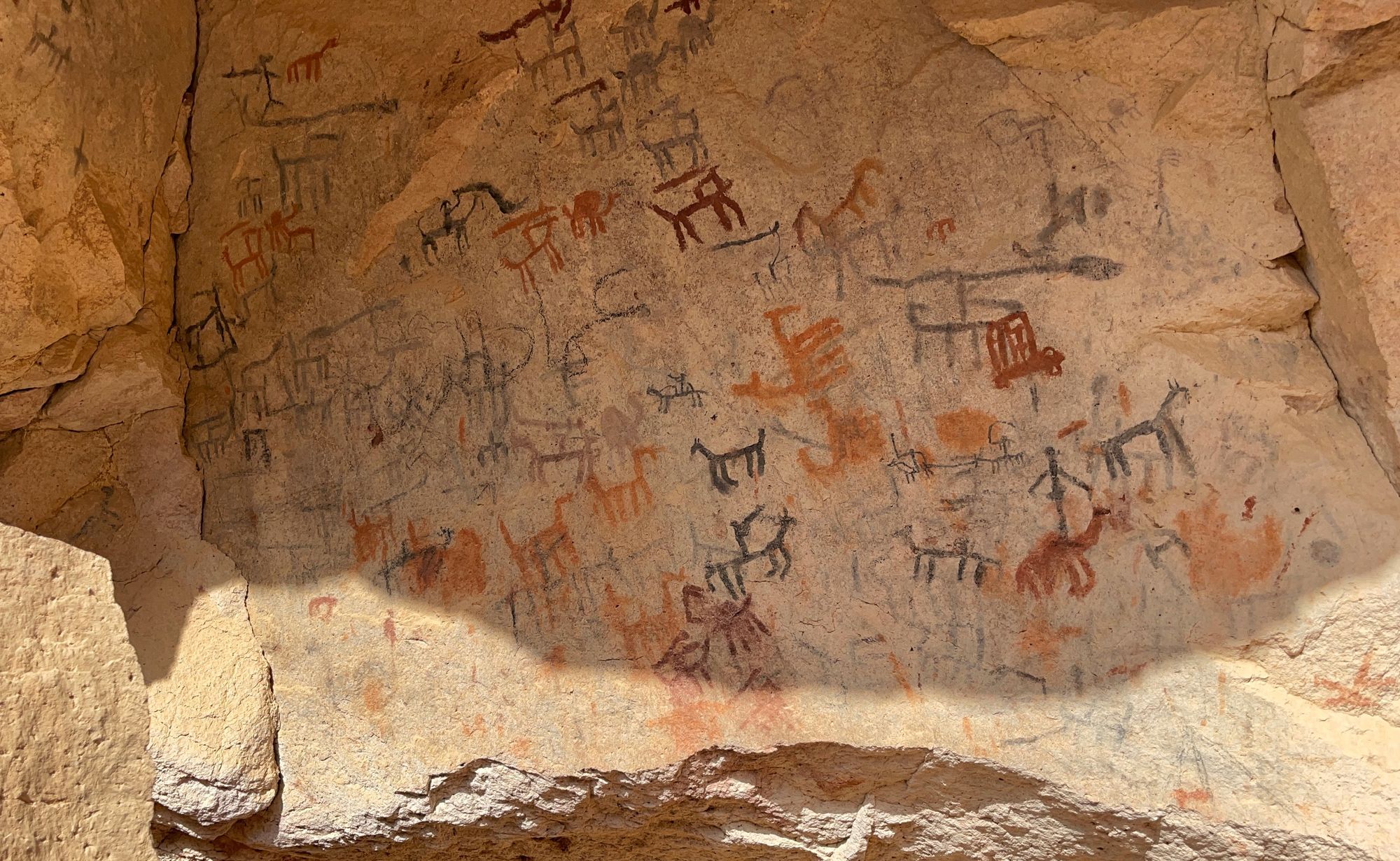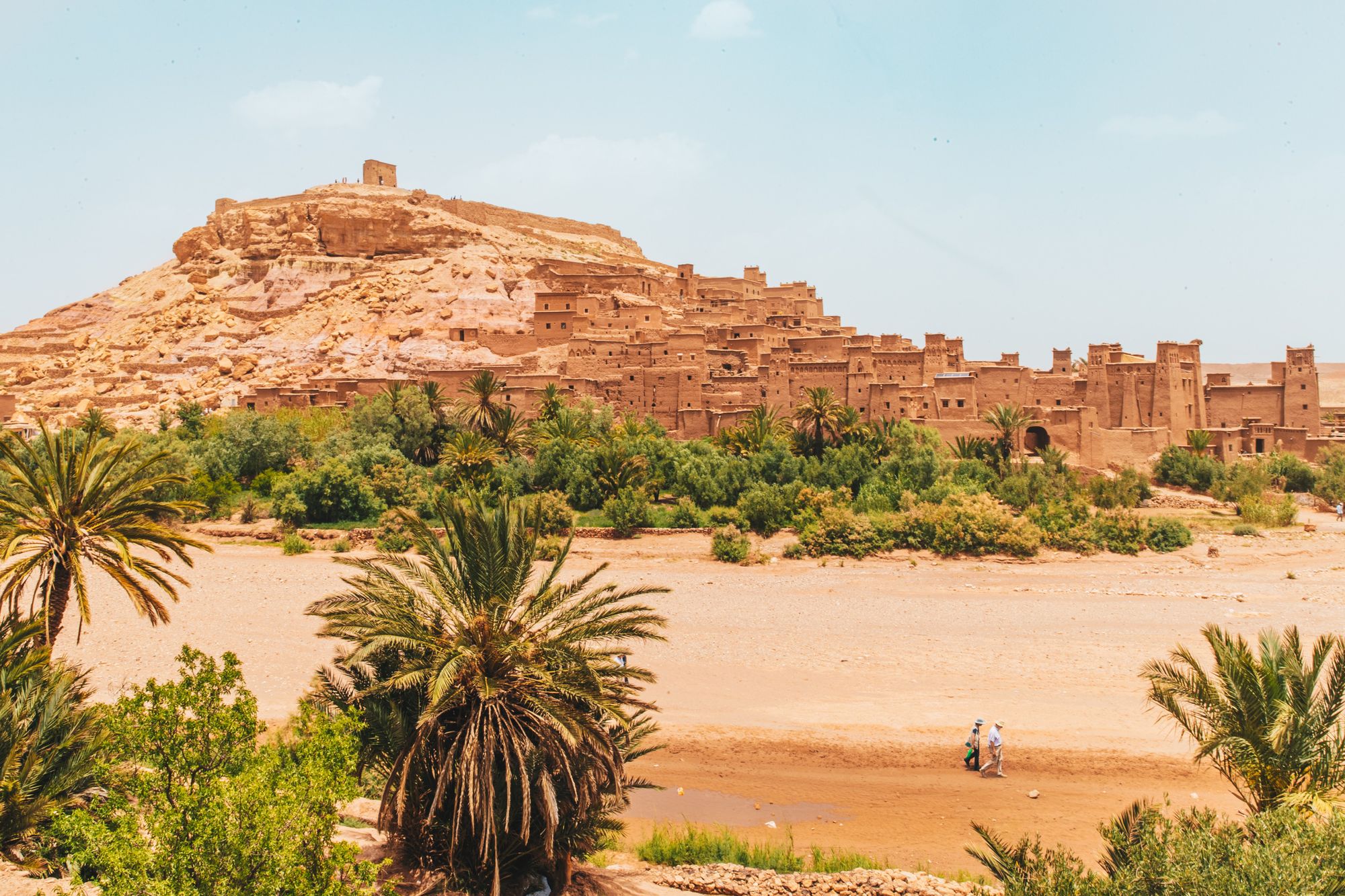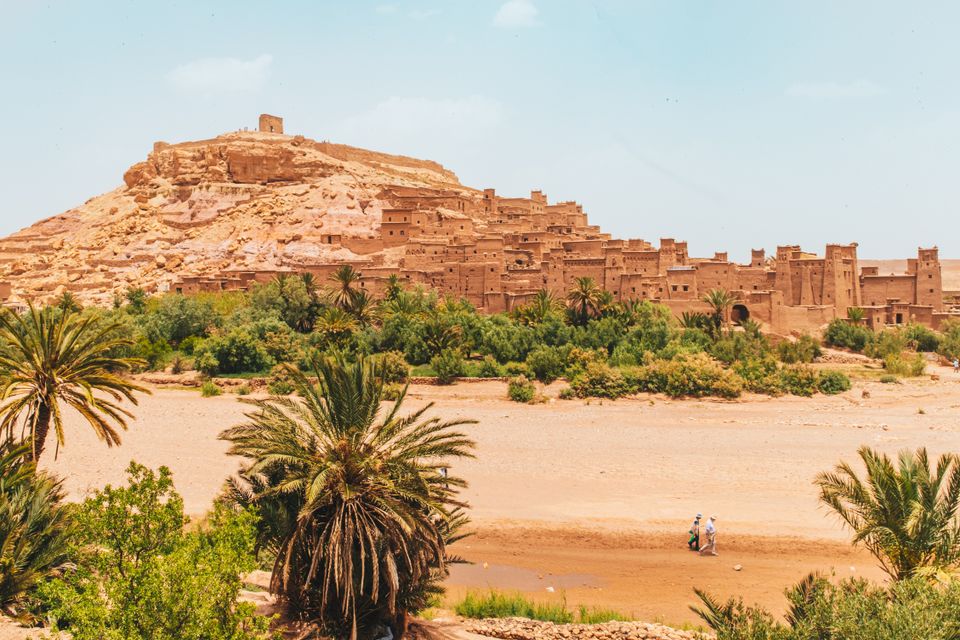Some 10,000 years ago cities emerged in the Fertile Crescent. Around that same time, human beings begun toying with a new technology--agriculture. We often don't think of agriculture as a technology, but it is one of humanity's most foundational technologies. It's likely not a coincidence that cities and agriculture emerged around the same time.
Prior to the advent of farming, human beings were (and in some cases continue to be) hunter-gatherers. This lifestyle was nomadic, people generally went where the hunting was good, where fruits, roots, nuts, and suchlike could be foraged. This was a labor intensive way of life without guaranteed payoffs, particularly in times of drought. In contrast, agriculture afforded people the opportunity to enhance the yield on their labor. It's no accident that this emerged in the Fertile Crescent where year round water supply was available via large rivers like the Euphrates, Tigris and Nile. It's no accident that this technology emerged in these river systems which experience annual flooding cycles that bring with them rich alluvials--depositing these in the banks on which farmers plied their trade. These advantages afforded early farmers the opportunity to experiment, and the opportunity to assess whether giving up their former way of life was worthwhile. The fertile soils of Mesopotamia underwrote that venture risk--and here we are 10,000 years later.
Taking on agriculture; cropping and pastoralism afforded humanity the opportunity to become sedentary. Becoming sedentary allowed further experimentation, allowing for slow but gradual improvements to crop yields. It allowed for families to grow but remain in proximity to each other, creating large settlements. Over generations these settlements needed complex governance structures to allow for the management of the increasingly complex social interrelations people now experienced. Staying in one place had the effect of growing the concentration of gross (everyone's combined) productivity. Consequently, these settlements became easy targets for raids from envious outsiders. This meant security became important; so armies were created, settlements became walled and gated. Farmers started to experiment with the tools they used to farm. Some of them discovered they were better at making tools than at farming, so they became blacksmiths--perhaps trading their tools for agricultural produce. Successful (very productive) farmers and blacksmiths found they had surplus (more than they needed for subsistence), so they stored and traded it for further gain (invested).
Some of the people in these communities begun to experiment with stone ores, turning them to metal. They discovered they could replace their stone and wood tools with metal tools that they could use for farming, building and protecting themselves. The growth in the complexity of these new labour markets enabled some people to discover they were very good at managing their communities, fighting others and expanding their communities, building, etc. Suddenly these farming settlements were becoming labour markets. People started to migrate between cities; going where opportunity was great--where a strong chieftain or monarch provided a greater assurance of security, where the threat of drought was less threatening because of proximity to reliable water resources. The emergent division of labor allowed for specialisations to occur, creating more innovations and ever more disciplines.
Trade was initially expressed through barter. One individual wants one object e.g. a shell, and is willing to exchange it for a fruit. By happenstance, some other individual has a shell and desires a fruit. This is called the coincidence of wants. It makes barter time consuming because one must find a suitable peer to trade with; it requires that one accept the likelihood of several failures before the double coincidence occurs. Primitive money was invented to solve that problem. It represented a universally accepted medium for value and therefore universal exchange. Now you could trade with anyone. However, before this happened--it appears that barter grew in its complexity. Contracts emerged, person X was willing to trade N units of a crop or livestock with person Y in exchange for Z; person Z will provide labour to person U in exchange for N units of barley. The creation of credit required record keeping (clay tokens), these represented an intermediate expression of something that was not a true barter or properly a form of primitive money. It was a claim on value. In a sense this was a more important development than primitive money. It allowed for the formalisation of trade; and the creation of fungible commitments. This opened the door for merchants to become a craft unto themselves, and eventually banking.
Whats the point of all this history? My point is that technology enabled the invention of cities, and thereafter sustained their growth and vitality. What happened 10,000 years ago is true today. Technology remains a key driver of city growth. In the distant yesterday it was agriculture, then manufacturing and electricity/energy/locomotion during the industrial revolution, today it's artificial intelligence and the internet.
The internet has made many conveniences possible. It's created opportunity for a great many people; and outsized wins for some cities (e.g. Palo Alto and San Francisco). However web3 represents an opportunity for the market for labour to decentralise in ways not previously possible. No longer does the market have to be in one cluster in one city or a few cities. The labour cloud now makes it possible for anyone in the world to participate in the global internet economy provided they are sufficiently skilled. It will enable new ways for human endeavours to be financed, extending the power of global markets to potentially anyone that needs capital. It's already happening with NFTs, and will be extended to every conceivable asset class. If markets for non-manufacturing, non-agricultural or non-physically bound services (e.g. waiting on tables) decentralise--where does that leave cities?
It likely means that people will prioritise non-labour considerations when evaluating where to live e.g. security, culture, values. Old cities had walls and gates, new cities may not have walls and gates--but they too will have to provide higher levels of security to their citizens. It could be the weather, it could be recreation, and or other considerations. However, whilst these considerations will be important--it's unlikely that the human desire for surplus (which helped create cities to begin with) will be totally ignored. I believe that the most successful cities will be those that are especially adept at coordination; in particular, enabling people to pursue a skill and then get paired to an opportunity. If the labour cloud will be like a library of jobs; both vacant and occupied--effective cities will be like an effective librarian; showing people where the book they want is, telling them about interesting alternatives, and even curating interesting selections for people who don't know what they want. This librarian would be hands-on, having enough meta data/knowledge on the library to reduce the visitor's pursuit costs (spending less time looking). It would be the equivalent of pairing a library guest who wants to read a book to an expert who can give them more insight on the harder to understand elements of said book. In this sense the goal of the city is "resident success."
The most effective cities would be the ones that enable their residents to find the means to acquire new skills at the lowest cost to the resident--and then get placed into work opportunities that maximise the resident's earnings. The most successful cities would be the ones that enable individuals to find activities, recreation and pursuits that they might find most interesting. The relationship between city administrators and residents often comes down to taxes paid and public services received--however, considering the fact that people can often spend the majority of their lives in a single city--that relationship ought to be more meaningful. The city's contribution to an individual resident's success needs to be evaluated in more dimensions than just "taxes paid--services rendered." What those key metrics for success are may vary from city to city--but certainly; whats likely is that those metrics may very well become personal.
I tend to think of the Star Trek computer in The Next Generation as being a great example of what that could look like. An intelligence that helps you make the most of your living spaces, can make educated guesses regarding the sorts of recreation you may enjoy, help you manage the elements of your social calendar that deal with your immediate and broader community. An intelligence that can tell you about the nuances regarding your city that mass market tech companies like Google might miss; for example--who made this statue, what inspired it, what apartments are available for rent on this street--right now? These types of second or third order considerations might be taken for granted today--but they might make the difference between a resident who is very emotionally in-synch with the city they live in and one who is not. A city that helps its residents find work, a city that helps them get new skills, exposes them to new sub-cultures within the city; in an era where people can work from anywhere and on for companies far far away--this will matter.
People first left nomadic life to build cities for the pursuit of more. They will continue to pursue life in cities in pursuit of--more.




Addendum:
Ankosam raised some interesting points on Twitter (in response to this essay) regarding the nature of productivity. I'm adding further context here on ways web3 might enhance productivity in places like Africa and Southern Asia.
In his seminal book on financial systems (Financial Structure & Development), Raymond Goldsmith postulated that economies can only be as developed as their financial systems allow. Since financial systems are supported by the savings available in an economy, and the potential uses (calls for capital by deficit holders of funds) of capital; it follows that economies with scant domestic savings will only finance the lowest risk ventures--and at costs of funds that reflect the deficit of capital in the system as opposed to the true risk of the undertaking. Where savings are plentiful, capital costs fall and the number of potential uses for capital rises substantially. Capital formation is very important.
The world's first farmers created capital through surplus formation, this allowed for trade and investment to start occurring as the surplus food allowed for speculative use of the surplus value. What was true then is true today. Unfortunately poor countries often have scant domestic savings, which causes capital to be expensive--and limits the potential for investment. It also means that larger and more risky undertakings are usually financed through non-domestic means e.g. foreign direct investment or foreign portfolio investments. Whilst this may create local jobs, knowledge/technology transfers, it often means that the equity upside of those investments sits externally. Which means the domestic economy has limited participation in the formation of capital.
The unfortunate situation however is that until financial systems in poor countries develop, this situation will persist. However for those financial systems to develop they need to catalyse growth in production. It means this happens gradually over time. However, De-Fi could potentially fast track this process. Here's how:
Person X is a citizen of Ghana and wants to build a factory to export flip-flops to the USA. Person X was a senior marketing manager at a factory that was in a similar line of business and this is verifiable via a trusted party e.g. a global auditor. Person X has signed a purchase order with a large wholesaler domiciled in the USA. Person X has also managed to have the off-taker agree to pay them in USDC. The purchaser has executed a letter of credit with a trusted entity e.g. a bank. Person X now needs short-term financing to fulfil the order, they use a De-Fi startup to issue commercial paper on the blockchain, assigning the letter of credit to the De-Fi startup (and remains liable to satisfy the order)--the letter of credit now also sits as an asset on the chain. The De-Fi startup issues a commercial paper token to thousands of buyers (backed by the commercial paper) and forwards USDC to Person X at an agreed discount to the original purchase order value. The funds are used to manufacture and ship the flip-flops. Once the order is received by the purchaser--the letter of credit matures, USDC is bought by their bank and sent to the De-Fi startup which then distributes the value across all holders of the commercial paper token.
Person X was able to issue commercial paper internationally and finance their business; exporting value. As a Ghanian living in Ghana, over time person X can grow their country's domestic manufacturing potential--and since they live there, they will also likely convert a substantial portion of their USDC into investable value in Ghana via pension contributions to staff, dividends paid to themselves, real estate investments, and other forms of investments they may undertake. As it stands issuing commercial paper is difficult for for SMEs to execute in traditional financial systems in poor countries. In time, De-Fi will make this available to many people.
The creation of remote workers will also enable global transfer of high value knowledge, enabling many of these workers to transition into entrepreneurs (like Person X). These entrepreneurs will become future factory owners, future technology startup funders, among other things. This global network of value will allow entrepreneurs and workers to leapfrog the limitations imposed on them by their country's weak financial systems.
Why is this of importance to city building? For one--cities that lean into emergent technologies like De-Fi stand to benefit by enabling their residents to raise the capital they need to build productive ventures like factories. The cities could use these emergent technologies to finance public goods, or enable people to have access to the credit they need to grow their skills, etc. To the extent that "resident success" is the North Star for startup cities--using technologies to enhance the frontier of opportunity for residents will be important.
Read more on these ideas here:
https://www.newafricanrenaissance.com/kilimanjaro


